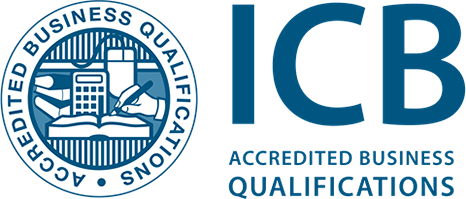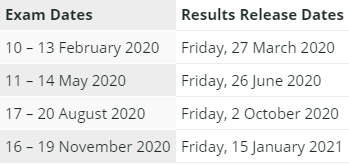Want to know when your ICB Results 2020 will be released? Here you will find the Distance Learner exam and results release dates.

The ICB Results 2020 will be released on the following occasions. Make sure to save the date! You can take a screenshot of the table down below, and use it at your disposal.

Where to find results
Apart from registering and enrolling for your exams, the student portal also acts as a space where you can access your results. Don’t know how to work your way through the portal? Follow these easy steps to view your exam results:
- Log in to the ICB Student Portal
- Click on ‘View my reports’
- Followed by ‘My assessment results’.
ICB Exam Timetable
 All this information and more can be found in the ICB Exam Timetable 2020. You can download yours and keep a copy on all your digital devices. If you prefer, you can always print yours and keep a physical copy on your desk. Both Distance Learners and Classroom learners can access their timetables here. This timetable also features important information such as exam entry, entry postponement, and results release dates.
All this information and more can be found in the ICB Exam Timetable 2020. You can download yours and keep a copy on all your digital devices. If you prefer, you can always print yours and keep a physical copy on your desk. Both Distance Learners and Classroom learners can access their timetables here. This timetable also features important information such as exam entry, entry postponement, and results release dates.
ICB Assessment Structure
Before writing the exams, it’s important to understand how the ICB assessments are structured. This will help you determine which aspects need your attention more. To pass your subjects you need to meet the requirements of the following assessments.
Formative Assessments
This refers to the assignments you have to complete throughout the semester. Including practical work and assignments. Some of these assessments may contribute to your overall mark to determine whether you have passed or not.
Portfolio of Evidence (PoE)
You will get your instructions for your portfolio of evidence a few days before your exam. Your PoE contains assignments you need to complete. You need to submit yours with your examination. This will be marked with your examination and will determine whether your semester was successful or not.
Summative Assessments
This is the examination you need to take at the end of your course. You have four opportunities per year to write an exam. You may register to write the exam whenever you’re ready.
How to Register for the Exams
If you’re ready to write your examinations, you need to pay an assessment fee for each subject you intend to write. The exam fee changes every year. You can pay the exam fee directly to the ICB and not your course provider. However, some colleges may include this fee in your course fee.
Access the ICB Student Portal
Manage your studies with your on the ICB Student Portal. Here you can:
- Register for your courses
- Make payments
- Register for the exams and
- Access your results
Ready to Take Your ICB Exams?
- Call us for free on 0800 39 00 27
- Or fill out this contact form for a call back.
